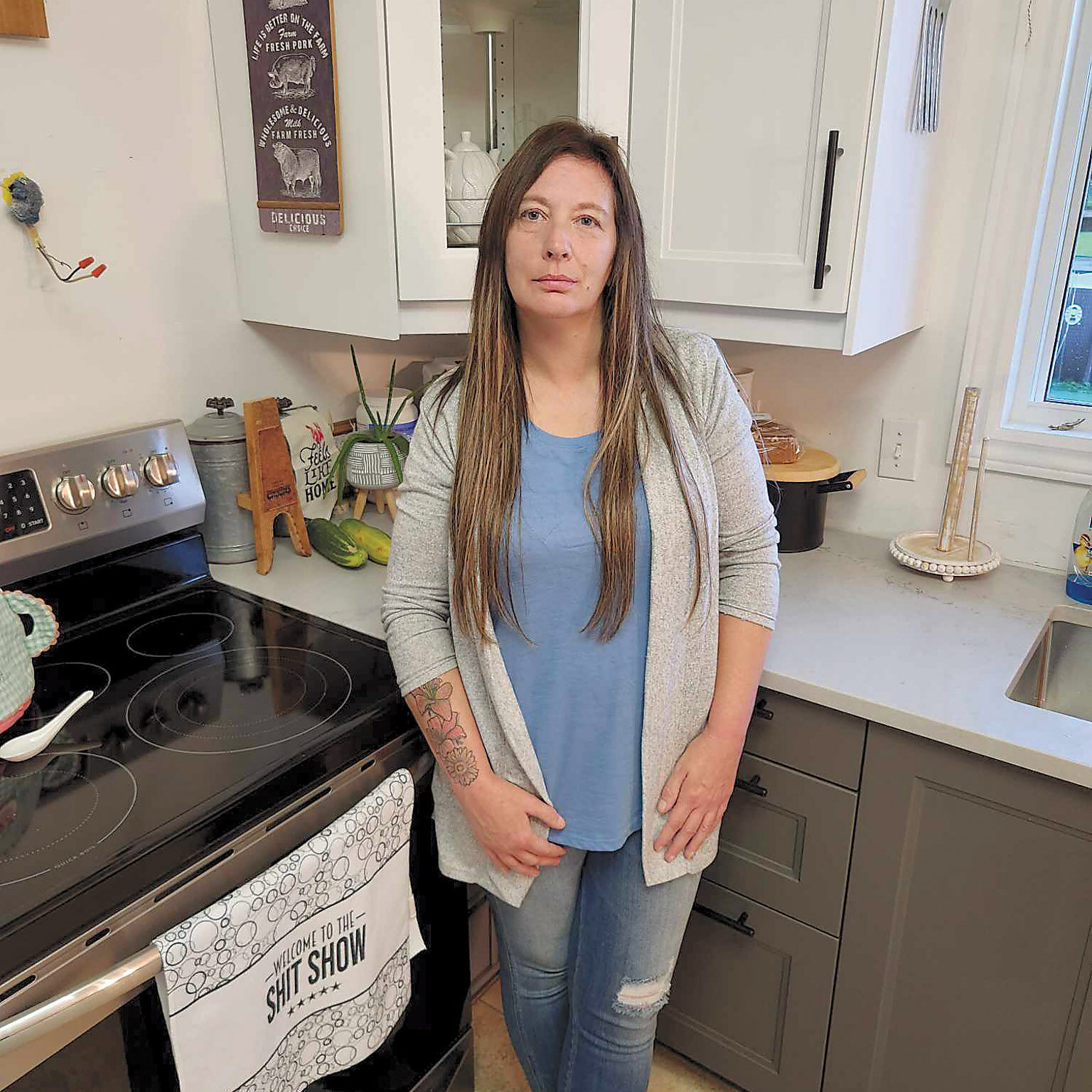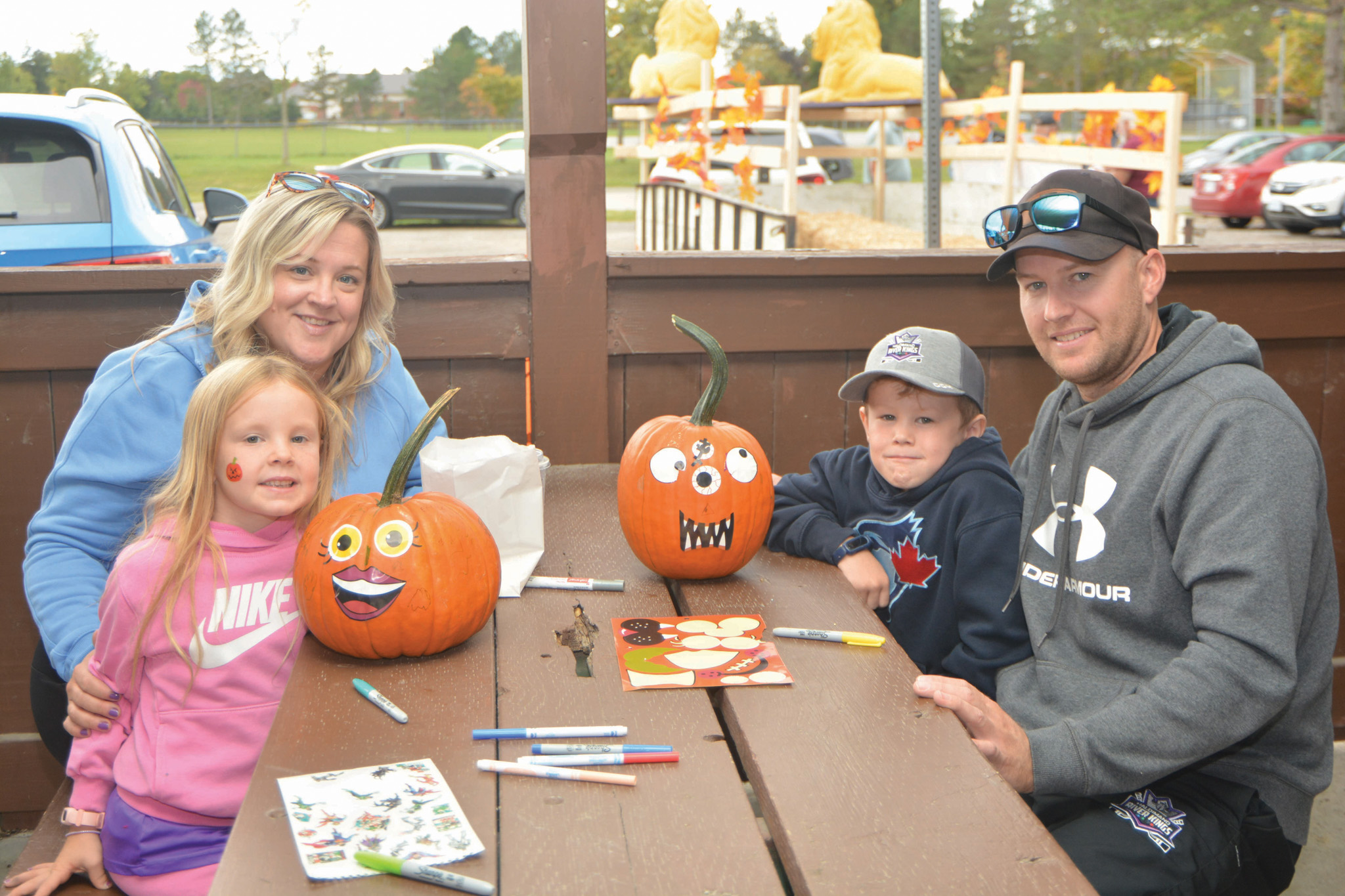DUNNVILLE—Dunnville’s Patricia Gardner has been living with a debilitating condition for the past 17 years, made only more difficult by the lack of public knowledge around that condition: agoraphobia.

Gardner explained, “There’s a lot of talk about mental health, depression, anxiety, but nobody has heard of agoraphobia. If they have heard of agoraphobia and they look it up, it says ‘fear of large spaces’, which is only 1% of the struggle that people with agoraphobia go through.”
She recalled in October 2006 when times were abnormally stressful: “I’ve always had depression and anxiety. At the time my mom had head and neck cancer. I was working, I was taking care of her – I wasn’t taking care of myself.”
Gardner was taking her prescribed anxiety and depression medication, but not eating well. On the evening of October 31, she collapsed on the kitchen floor after a sip of Sunny D.
“My sugar was so low that when I drank that it must have spiked my sugar. I fell to the ground and was almost paralyzed,” said Gardner, whose agoraphobia began following an unclear diagnosis after the incident.
Gardner could no longer be left alone, requiring constant companionship: “The panic attacks came non-stop all day.… I haven’t driven since 2006.… I couldn’t eat or drink anything new. The list of things for people with agoraphobia is endless.”
“You basically become a small child. Your whole life is ripped apart and taken from you,” she continued, noting she didn’t leave the house for four years. “You don’t have any freedom. You can’t go where you want when you want; you have to rely on other people all the time.”
Her psychiatrist prescribed new medication, but it didn’t work and Gardner set out to find additional help, landing with the Canadian Mental Health Association (CMHA) of Burlington. While ready to help, the organization lacked experience: “I actually had to explain to them what agoraphobia was, and I had to teach them how to go about helping someone with agoraphobia.”
Over time, Gardner built a routine with the help of two CMHA workers. With her new confidence, she moved to the rural community of Smithville with her husband in the mid 2010s, where things quickly devolved.
“The four years I lived there, I went completely backwards in all of my progress, to the point where I couldn’t go outside,” said Gardner. “I had to start again from scratch.”
Hoping to maintain a more rural lifestyle, but with more access to needed support, Gardner and her husband moved to Dunnville in 2019 to once again access CMHA services and try to rebuild her coping strategies. This included exposure therapy, such as sitting alone on her deck, working in her backyard, and walking from her house to the back of her property and back.
Helping Gardner through this process was CMHA of Brant/Haldimand/Norfolk Case Manager Charlotte Potticary.
“Patricia has great self-awareness, knowledge, and experience regarding her mental health condition, so she was able to provide a lot of insight into ways she can cope and move toward recovery from agoraphobia,” said Potticary, noting the Community Support Services program is client-centred, led by the client’s personal goals.
She commended Gardner’s initiative to develop recovery strategies with CMHA Burlington. Since working with the local CMHA team, Gardner developed a goal plan and has been working hard ever since to gain back her independence.
“Patricia feels safer when she is in the company of people she knows and trusts, so we spent time building rapport prior to travelling away from Patricia’s home. These days, Patricia and I often attend busier parts of town … to allow Patricia to be outside her home while still feeling safe with her Case Manager.”
Potticary helps Gardner familiarize herself with street names and locations, “with the hopes that one day she can travel independently around town. Encouragement, emotional support, and reminders of coping skills are a big part of the support I provide to Patricia.”
Gardner’s plan includes finding new places to explore. With a love for music, she visited Dunnville’s The Music Room and, with the support of a driver from Senior Support Services (SSS), she began attending regular drum classes. While very nervous to begin classes, Gardner found a second home at the store: “Cyrus, who owns it, and Bill, who’s my teacher, have been so understanding,” she said. “It’s been a safe place for me to go. If I get there and I’m having a hard day and I’m worked up, Bill and I will start talking, making jokes, before we start.”
Due to this kindness and support, Gardner’s world has grown exponentially since arriving in Dunnville. Through one of her drivers, Tamara Lovegrove, Gardner also started attending weekly chair yoga classes.
“I started getting to know her, she understood where I was coming from, and I felt really safe with her, and that let me take the next step of actually going out with her,” said Gardner.
Lovegrove called the progress she’s seen in Gardner over the past nine months “unbelievable.”
“All I did was give her opportunities to get out. After drums, I would say to her, ‘hey do you need anything at the grocery store’ instead of just taking her right home,” said Lovegrove. “A lot of people just don’t take the time with people that they need to get the exposure to get better.”
Gardner has come so far lately that she’s been open to more experiences, using her learned coping skills to once again attend live concerts (albeit at the same venue and in the same section each time), and has been volunteering at Julia’s Care-a-Closet.
“My CMHA worker will come and stay with me inside Julia’s while I volunteer there. The plan is that might go on for a couple of months, then she’ll go and sit outside in her car, so I know she’s still there. The next plan would be for her to leave, maybe go have lunch somewhere, run some errands in town, and then come back and get me,” said Gardner.
Asked to rate how badly her agoraphobia impacts her currently on scale of 1-10, she said, “I’m at a 4…. Once I stopped being in fear of being in fear, the panic attacks went to half right away…. The more the brain understands that nothing’s going to happen when you have those anxiety attacks, the easier they will get.”
While she “still can’t be left alone anywhere,” Gardner’s will to live her life fully is inspiring. She hopes to be an advocate for others with agoraphobia.
“I would really love to educate people on what it really is, and just how hard it really is. Once your brain attaches itself to this, it’s almost impossible to remind your brain, ‘I am fine, I am going to be okay.’… You can make a lot of progress, but it’s hard to be completely cured. It’s something I’ll always have, but I’m learning to live with it better.”
Potticary added, “When Patricia is managing her agoraphobia well, she challenges herself with small, achievable goals, slowly building up her confidence and promoting wellness and fulfillment. Patricia and I have recently been discussing the idea of Patricia providing Peer Support, meaning she can use her own personal experience with recovery to help others who might be experiencing similar issues.”
Gardner believes there are others in the community who may be suffering silently with agoraphobia: “A lot of people never take the first step because they’re afraid to leave the house…. There is a lot of stigma about that…. A lot of illnesses are cut and dry. If you have cancer, this is what it will look like. With agoraphobia, there is no straight path.”
She concluded, “No matter where you live, you should be entitled to mental health support.”





